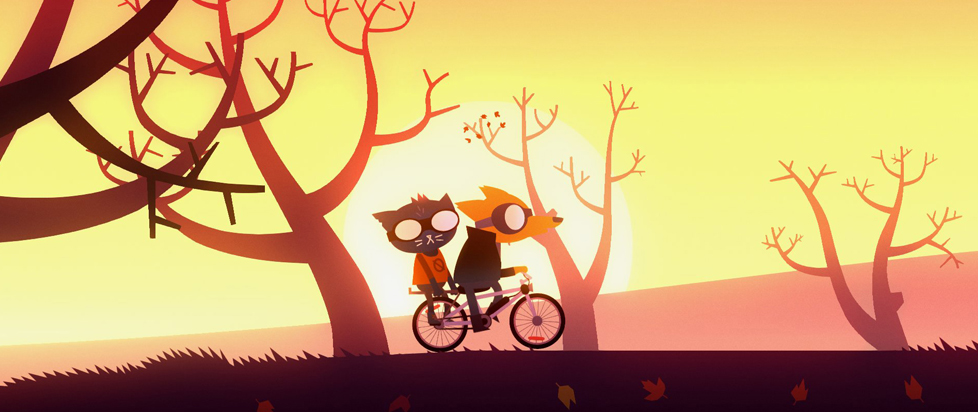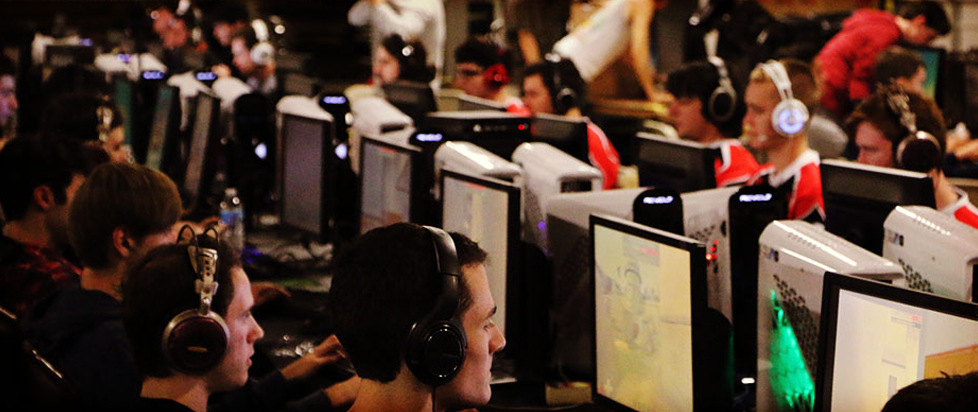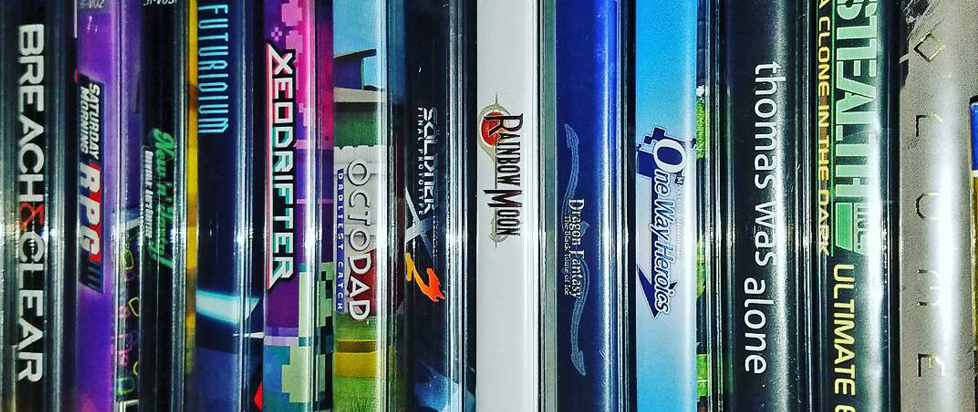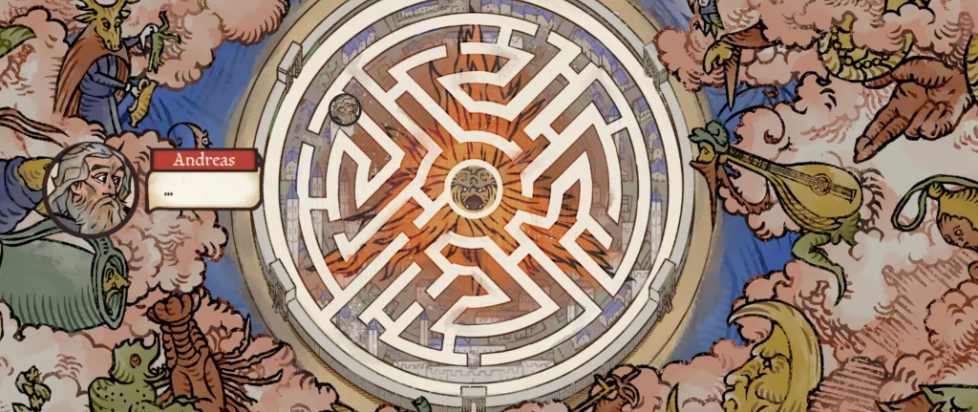
The Future Will Forget Us
This is an excerpt from the cover story of Unwinnable Monthly #162. If you like what you see, grab the magazine for less than ten dollars, or subscribe and get all future magazines for half price.
———
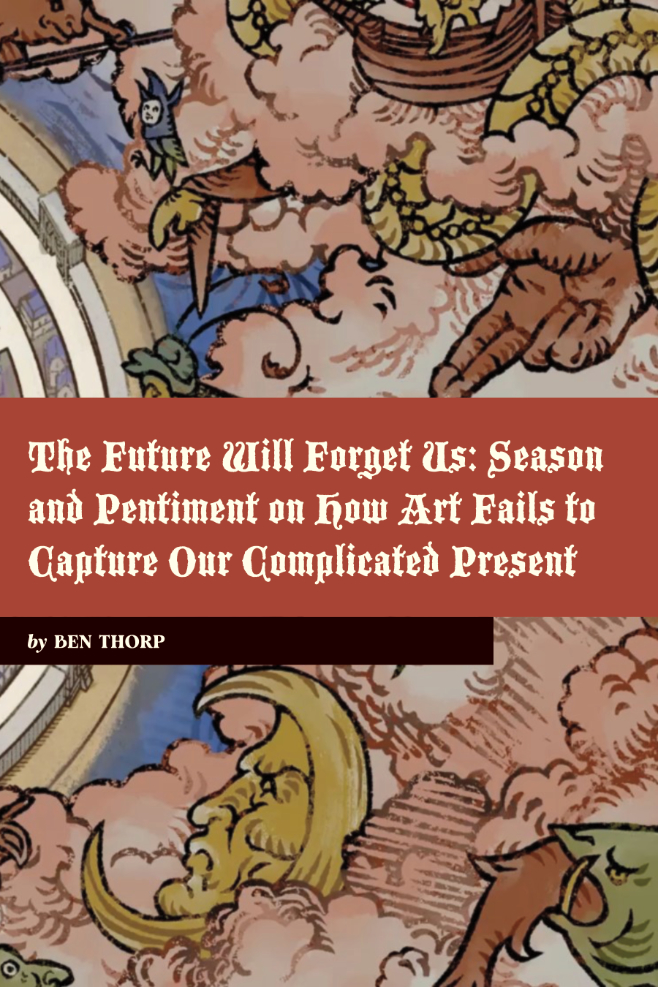
There’s a half-joke my girlfriend and I like to tell when we encounter a tweet that is particularly online and brain-poisoned where we imagine some poor, earnest anthropologist from the future trying to make sense of it. Pick basically any absurd post – joking or completely earnest – and imagine someone one hundred, maybe two hundred years in the future trying to wrap their mind around it, whether it’s a thread of people screaming over a video depicting macaroni being cooked with raisins or a deep fake audio clip of President Joe Biden discussing how he’s been trapped in a Tenet situation and hates having sex backwards. “Can anyone do something about this,” he asks a crowd with a weird amount of simulated earnestness, his brow furrowed with worry. The joke contains a kind of question: will anybody from the future ever really be able to make sense of how things are now? And a little bit of, how much of this is just noise?
I’ve been thinking about this a lot while playing both Obsidian’s Pentiment and Scavengers Studio’s Season: A Letter to the Future. Both games take different approaches to ask the same question: how much can we really know about the past through what people capture in their present?
In Season, you play as Estelle, who goes out into the world with an audio recorder, camera and a journal in an effort to capture the world as it is during this particular season. The game kicks off after Estelle’s friend dreams that the current season is coming to an end – and tasks her with trying to document everything that exemplifies life in their time. The game is set in a kind of rosy post-apocalypse. We are told in the beginning section of earlier seasons, including the Golden Season when everyone drove cars. The game is littered with the remains of crumbling overpasses, massive concrete supports that stick out of the earth like bones. You can find old telephone booths with notes on them about how all the lines are dead. I hate this season, someone has scribbled, long ago. And in one of the game’s most arresting moments you bike across the body of an ancient, capsized ocean freighter while in the background wind turbines stick out of the ocean like toothpicks. It’s a beautiful game that not only suggests but nearly shouts that life will continue at the end of the world. Time is always passing into a new season, after all.
As you explore each area you are meant to document the pieces that stand out to you – the things you hope some future generation will use to better understand this moment. I’ll admit in this first section my journal had neither artistic nor journalistic merit. Everything felt too relevant, too important, and because of that nothing could float to the top.

My early journal entries are crammed with so many photographs, audio clippings and drawings that it became impossible to really even read. The individual lines and musings that you can write on the page were buried within a mess of noise and images. I suspect the game knows you will do this, and even wants you to overindulge in trying to capture everything because in the largest area of the game, you uncover plans by an organization called the Greyhands to perform a ritual that will erase the memories of everyone in the world. In one audio clipping, a Greyhand warns that memories are like ripples across a pond: too many of them and it becomes impossible to see or think. The only way to move forward is to let go of the past, the Greyhounds argue in one pamphlet found at a roadside education facility. People need the clarity of forgetting.
The Greyhands, to the game’s credit, aren’t positioned as villains either. They may even be right. The world of Season is littered with dark purple flowers that regurgitate audio clips of old memories, a neat purple rippling filter like a boozy dream playing across the screen when you get close to them. In one of my favorite segments of the game you stumble across a field of purple flowers marked with signs warning you that you will be overwhelmed if you enter. Estelle, impervious, bikes through the field where memories crash over you like the sound of a crowded room. In the center of that field is the massive stone head of some ancient void god that if you pray to it will remove a single memory. I prayed and Season’s protagonist forgot her name. To me, the game was saying something about that crammed, unreadable journal in my backpack: be more selective, not everything can be saved.
* * *
In Pentiment, you spend the first two acts playing Andreas Maler, a journeyman artist from the 1500s working at the abbey in the fictional Bavarian town of Tassing before becoming embroiled in a murder investigation. Andreas is, like any artist, trying to find his own voice while mostly parroting the masters of the canon. In one early scene, a brother at the abbey tries to steer Andreas toward depicting life more truthfully. Andreas has been drawing a relief of November depicting peasants taking their pigs to the forest – a practice that has since been banned in most regions of the country.
“This is how November is depicted,” Andreas argues.
“But it’s not how November is,” the brother replies.

As the game pushes into act two we find Andreas has fallen out of love with art entirely, beaten down by making art that apes the worlds and worldviews of his wealthy patrons. By the end of the act, Andreas will hurtle himself into the abbey’s burning library, seemingly to his death, during a peasant revolt. It’s a moment that I think is meant to read as the character’s desperate attempt to save the history, and pieces of truth, that are buried there.
Each act features a significant time jump, and Act 3 puts you in the shoes not of Andreas, but Magdalene Druckeryn, a local Tassing resident who has been put in charge of creating a mural depicting the history of the town. Like Season, the game asks you to explore the world so that you can then try to distill that world into a piece of art that best represents it. There are only a few primary documents from Tassing’s Roman history and you are left to search the old aqueducts and connecting mines buried beneath the town in a hunt for clues to the past. You also write letters to historians and interview townsfolk about what they know.
Unlike Season, Pentiment makes you acutely aware that this job of trying to document and represent the world is an inherently political one. The deep past is contested but the more recent past even more so: as your mural turns to the peasant revolt you realize everyone’s memories of it are different and any depiction will necessarily leave something out. Will you choose to depict the families who lost members after the Duke sent soldiers to violently put down the uprising? Show the peasants setting fire to the abbey? Or will you try to capture the feeling of a community banding together to fight for a better future?
———
Ben Thorp is a public radio reporter, podcaster, and occasional essayist working In Indianapolis. Follow them on Twitter at @sad_radio_lad.
You’ve been reading an excerpt from Unwinnable Monthly Issue 162.
To read the article in its entirety, please purchase the issue from the shop or sign up for a subscription to Unwinnable Monthly!

